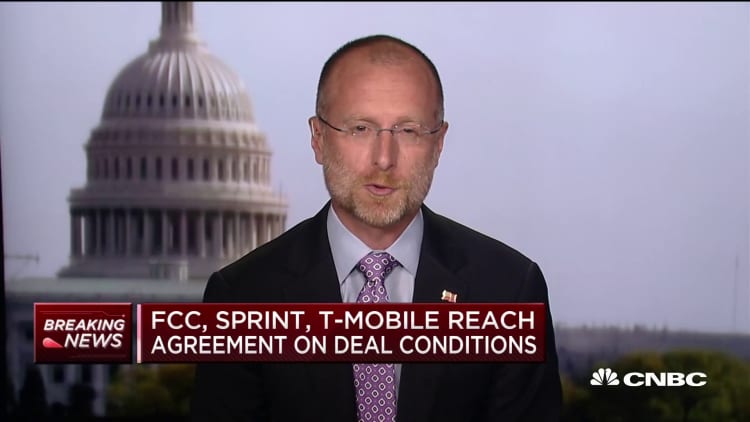
Commissioner Brendan Carr of the Federal Communications Commission told CNBC on Monday that suppliers of 5G wireless networking equipment in the U.S. should "share Western values."
"Companies that are deploying our network equipment [should] share our Western values in terms of respecting IP rights, respecting the First Amendment," Carr said on "Squawk Alley," discussing security around next generation 5G wireless technology.
Last week, the Trump administration effectively blacklisted Huawei, the Chinese telecom giant that makes wireless equipment that can be used in 5G network deployments.
The move announced Wednesday states, among other requirements, that U.S. firms must seek government approval before doing business with Huawei. The Trump administration alleges that Huawei poses a national security threat because of close ties to the communist Chinese government. Huawei has denied those allegations.
Huawei is also a major smartphone maker — and following the White House's directive found itself on the outs with American companies, including Google. The Alphabet unit suspended business activity with Huawei, involving the transfer of hardware, software and key technical services. That means Huawei won't be able to license the Android operating system complete with Google services. It will instead have to use an open-source version.
Carr said the government is focusing on the security of the supply chain, adding the leadership shown in the race to 5G is a "great success story" for the Trump administration. Earlier this month, the FCC also unanimously voted to prevent China Mobile, which is owned by the Chinese government, from providing the U.S. with telecommunication services.
"Right now, the leadership we're showing is going to hold us in good stead," Carr said, adding the FCC and Department of Homeland Security are looking into steps to ensure safety, but no changes have yet been made.
The U.S. is still reliant on other global companies for supplying 5G equipment, such as South Korea's Samsung, which launched its first 5G phone last week.
The U.S. is looking into "taking out equipment from certain vendors that are in the U.S. network" and putting "reviews into place before new equipment goes into the network," Carr said.
The Trump administration has pushed allies around the world not to adopt 5G technology from Huawei. Those efforts have had mixed results in Europe, where several countries declined to stop doing business with the company.


